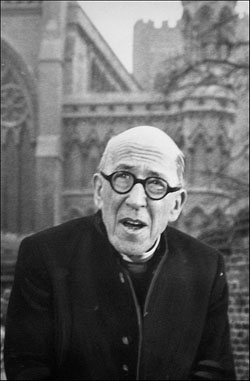The media spotlight is now on the volunteering crisis in the Church of England with bureaucratic bossiness getting a large share of the blame.
Save the Parish, launched in 2021 to counter CofE centralism, is highlighting the national newspaper coverage on its web-site and on social media after The Church Times published an investigation on March 15.
The paper wrote last month to the Church’s 42 dioceses ‘in an attempt to quantify the extent of the (church volunteer) recruitment challenge’.
It reported that up to 21 per cent of parishes in the dioceses that responded to the survey had no churchwarden: ‘Those that replied reported that between one quarter and 40 per cent of parishes had only one churchwarden, while between five and 21 per cent had none. One reported that 22 per cent of its parishes were missing one or more people in key positions this January.’
The Telegraph ran a follow-up news story on March 18 headlined ‘Up to a quarter of Church of England parishes have no wardens’, which appeared to exaggerate The Church Times report (21 per cent with no warden is surely closer to a fifth than a quarter).
‘Critics say the volunteer shortage comes as wardens face mounting workloads and bureaucracy as they struggle to support overstretched vicars who increasingly have to represent more than one congregation,’ the paper reported.
Save the Parish, which is clearly ruffling feathers among the CofE higher-ups, also highlights a letter in The Times on March 18 from the Rev Toddy Hoare, based in North Yorkshire. He drew attention to a recent presentation by the campaign group hosted in the House of Commons by supportive politicians which ‘cited 600 briefcase clergy – those without parishes working in administrative roles – more than half the number needed to fill our vacant parishes.
‘The church has become a vast bland bureaucracy, dreaming up various ideas to justify herself instead of doing God’s work. She should be an agent of the Holy Spirit, but instead she has lost humility, vulnerability and credibility,’ he wrote.
The Telegraph followed up its news story with a comment piece by Save the Parish campaigner, Emma Thompson. Her article, ‘The Church of England is treating its volunteers abominably,’ highlighted a comment under the news story from an unnamed former churchwarden.
He or she wrote: ‘The chickens are coming home to roost for the CofE. I spent six years as a sole Churchwarden effectively taking on most of the role of a paid member of the clergy. My rector had three other churches and two church schools to minister to. It was an all consuming voluntary role.
‘I decided to resign after my last annual swearing-in ceremony when the Archdeacon gave us a diatribe about the sins of the Save the Parish movement.’
The former warden reported that as neither the Archdeacon nor any of the Bishops in the diocese had ever visited their church, ‘I decided to vote with my feet.
They can clear the weeds from the drains, treat the woodworm, go into school to put Christingle oranges together, referee the battle between the organist and the bellringers, arrange transport to church for the elderly members of the congregation, answer dozens of emails from bridezillas, the list quite frankly goes on ad infinitum.’ (Bridezilla is apparently churchwarden-speak for a prospective bride who is overly demanding in the run-up to her church wedding.)
However, the practical result of a churchwarden resigning is not more work for the CofE hierarchy in a diocese. The structure of the CofE dictates that the responsibility for clearing drains or dealing with bridezillas in a parish falls on the local church, not on the Archdeacon or the Bishops. So, either the hard-pressed vicar is landed with the problems or the dwindling band of church volunteers.



